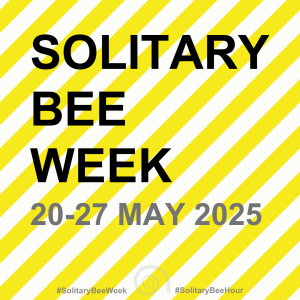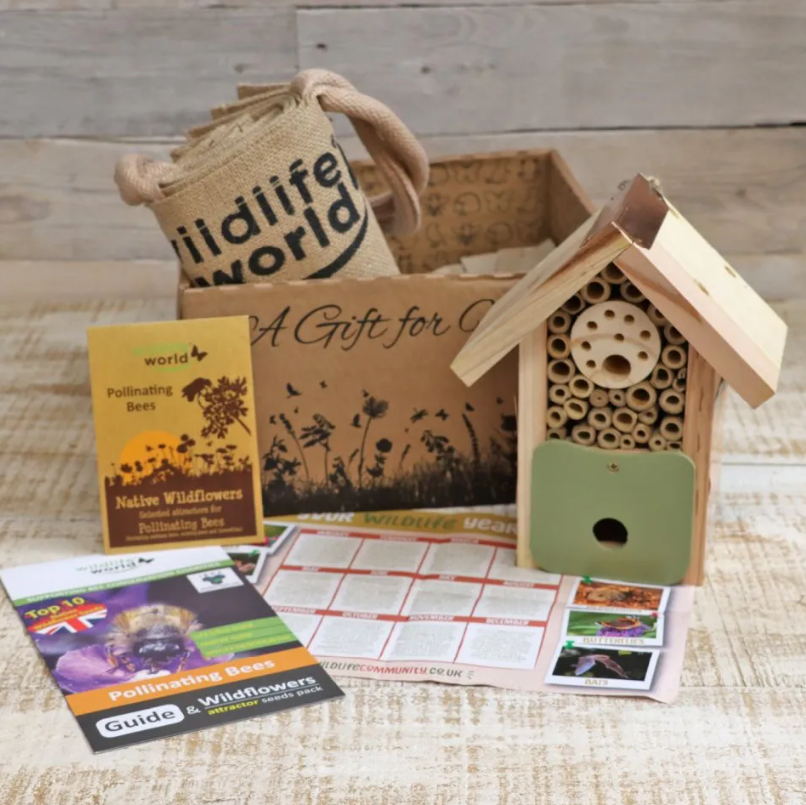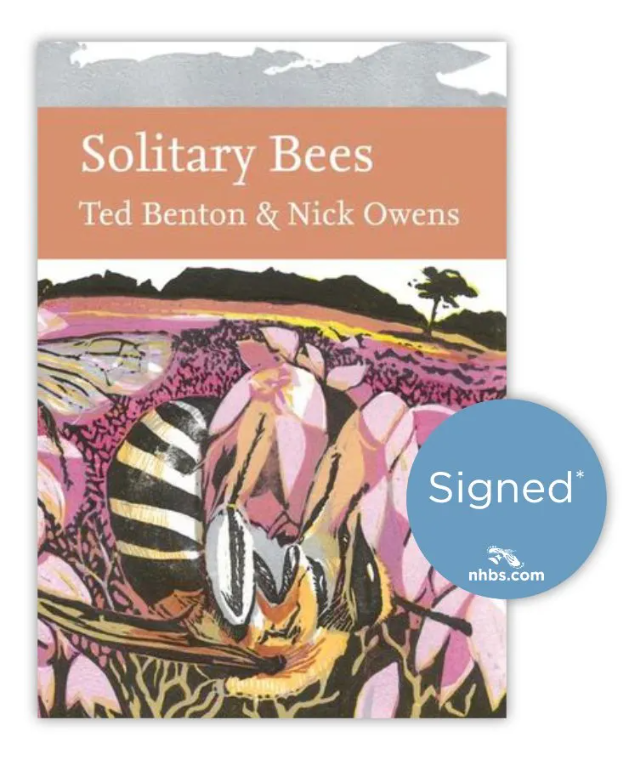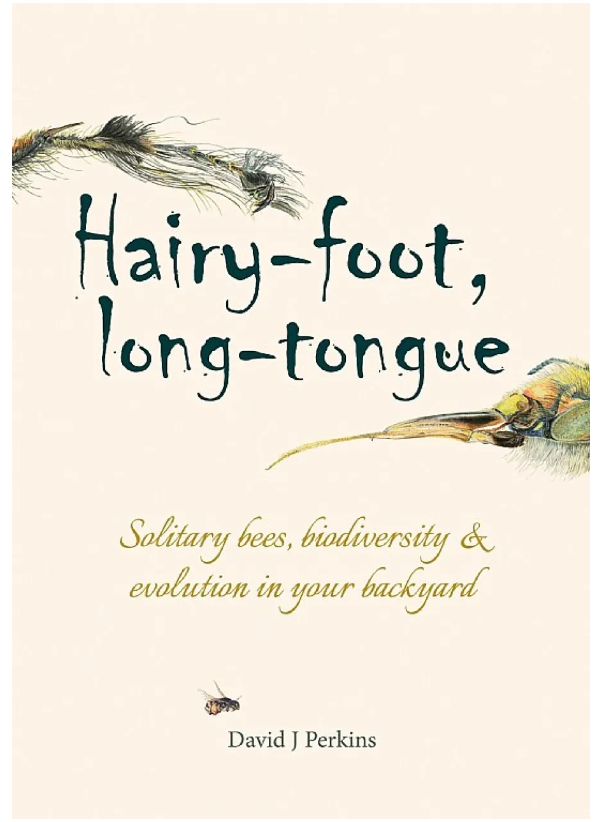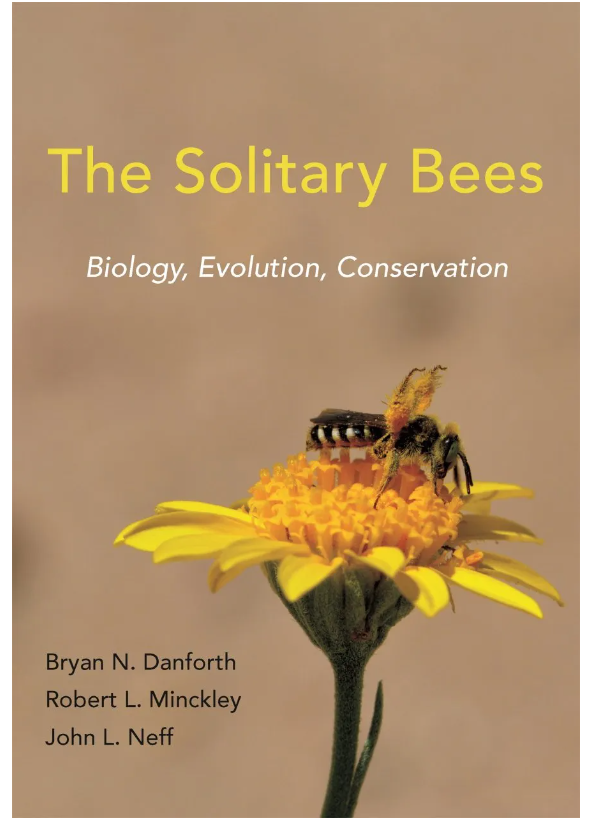Solitary Bee Week was founded in 2018 to raise awareness of the importance of solitary bee populations across the globe. Now hosted by Buglife, this week-long event hopes to encourage the public to pledge their support for these unsung heroes. Solitary Bee Week 2025 (Tuesday 20th – Tuesday 27th May) gives us a chance to support these vital pollinators and #EarnYourStripes.
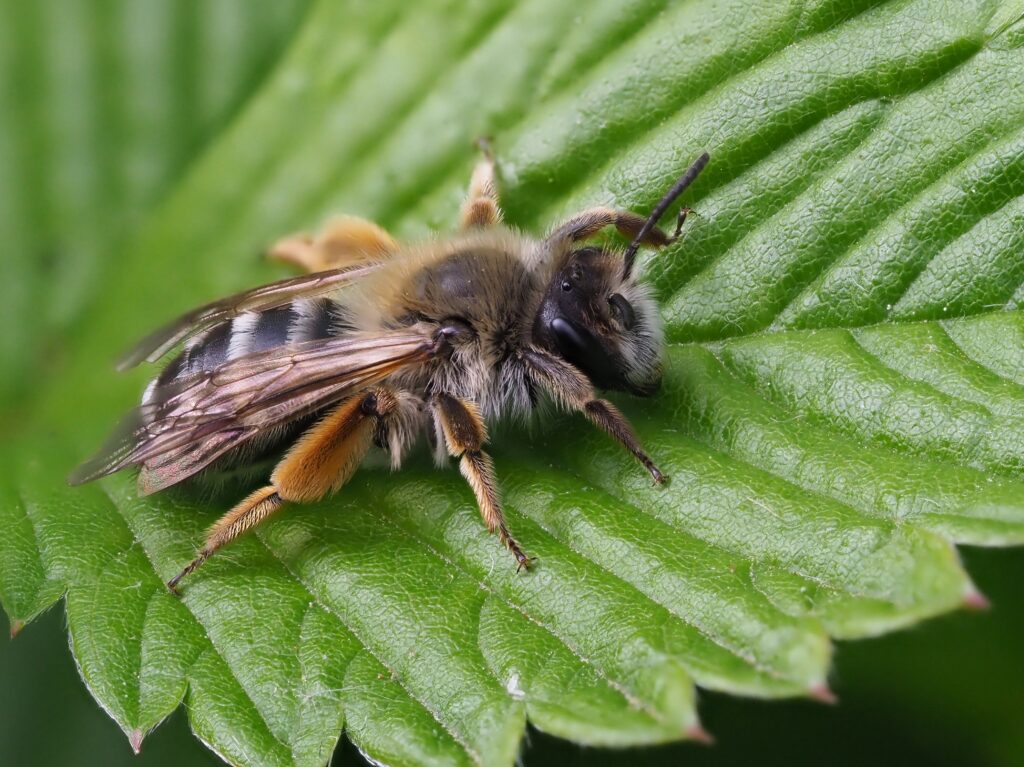
What are solitary bees and why are they important?
It is estimated that there are between 20,000–30,000 solitary bee species across the world, and the UK is home to 240 of them. Solitary bees do not produce wax or honey, do not form hives, and do not exhibit swarming behaviours – a striking difference to the behaviours we usually associate with bees. They typically nest in underground burrows or in the hollows of plant stems and tunnels, so it is no surprise that we are seeing a downturn in the abundance of the group with increasing urban development and environmental decline.
As we urbanise, we remove the habitat of these extraordinary pollinators – we are seeing fewer hedgerows and wildflower meadows, which would otherwise provide vital food sources for these insects. Partnered with agricultural intensification, environmental changes are contributing to the significant declines we see in pollinators. Solitary bees are important for pollination, and their loss could be devastating not only to the environment, but for food security worldwide. Solitary Bee Week is helping raise awareness of these insects in the hopes of managing their threats and preventing further declines in the future.
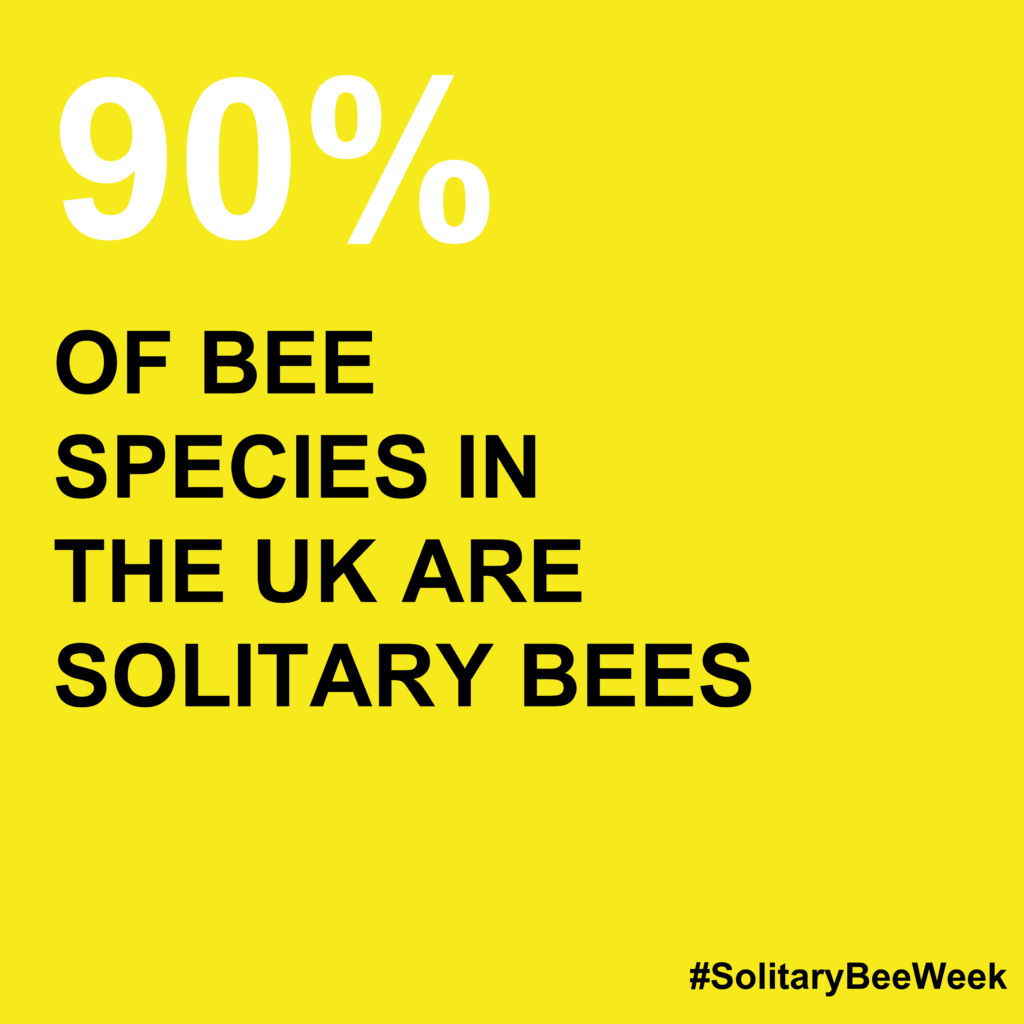
How can I take part?
From pollinator identification workshops to solitary bee walks, Buglife is hosting a range of events in support of Solitary Bee Week. An interesting highlight of the week, Buglife have collaborated with Hayley Herridge the Pollinator Gardener to create the ‘B-Lines Garden’ to be featured in the Hampton Court Palace Garden Festival – highlighting the importance of insect pathways to provide corridors for pollinators. Find the full week’s itinerary here.
What can I do to support my local bees?
Solitary Bee Week is the perfect time to pledge your support for local solitary bees.
Leaving an area of exposed soil and providing bee hotels are great ways to provide nesting areas. Mining bees account for around 70% of solitary species – patches of exposed soil are an excellent way to provide space for this group, where they create underground nesting burrows. For cavity nesting bees, such as Red Mason Bees, hotels are a great way to provide nesting habitat where they will lay eggs in the dry, hollow tubes. Planting wildflowers and nectar-rich plant species is another way to support pollinators by providing an important food source.
Here we have chosen a selection of products in our range that can support solitary bees in your outdoor space:
#257245 Solitary Bee Nesting Tin
#259552 Solitary Bees (Hardback)
#261456 Hairy-Foot, Long-Tongue (Paperback)
#244919 The Solitary Bees (Hardback)

